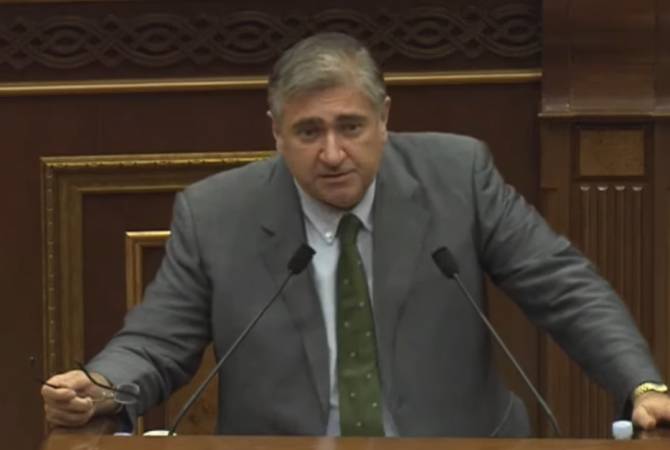Armenian opposition parliamentarian Arthur Khachatryan has expressed skepticism about the impact of the economic aid pledged by the United States and the European Union, insisting it will fall short in reducing Armenia’s reliance on Russia.
European Commission President Ursula von der Leyen and U.S. Secretary of State Antony Blinken unveiled the aid package during their meeting with Prime Minister Nikol Pashinian in Brussels. The EU has committed $270 million over four years, while the U.S. will provide $65 million this year.
Despite the stated aim of diversifying Armenia’s foreign trade, which reached $20.7 billion in 2023—with Russia accounting for over 35 percent and the EU just 13 percent—parliamentary deputy Arthur Khachatryan doubts the funding will facilitate significant structural changes. Khachatrian points out that Armenia lacks goods suitable for European markets, dampening hopes of shifting away from the Russian-led Eurasian Economic Union (EEU).
Khachatryan suspects the Western funding won’t sway the Armenian government to leave the EEU or the Collective Security Treaty Organization (CSTO), despite possible pressures from Blinken and von der Leyen. However, Deputy Foreign Minister Vahan Kostanian denies claims of Western pressure to leave Russian-led blocs.
Russia remains Armenia’s primary export market, particularly for food and beverages, accounting for over 40 percent of its export revenue worth $8.4 billion in 2023. Yet, strained Russian-Armenian relations and Armenia’s pivot towards the West raise concerns about continued access to the Russian market, prompting calls from Pashinian’s government to explore alternative export avenues.
Sargis Khandanian, chairman of the Armenian parliament committee on foreign relations, sees the aid package as just the start of a process wherein Yerevan could seek further assistance from the EU and the U.S. He believes the aid will yield tangible benefits, enhancing quality standards and boosting specific sectors of the economy in the near term.




